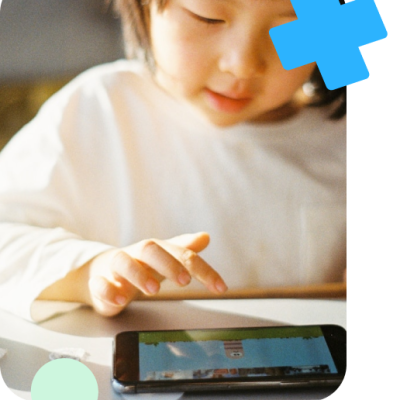

In maths, a product is the result we obtain when we multiply two or more numbers together.

Author
Michelle Griczika
Published
September 13, 2023


In maths, a product is the result we obtain when we multiply two or more numbers together.

Author
Michelle Griczika
Published
Sep 13, 2023


In maths, a product is the result we obtain when we multiply two or more numbers together.

Author
Michelle Griczika
Published
September 13, 2023


Key takeaways
The term ‘product’ often comes up in maths lessons and homework, but what exactly does it mean? In this guide, we’ll explain what a product is, teach you how to find it and provide practice questions for you to have a go at. Let’s get started!
So, what exactly is a ‘product’? In maths, product means the result you get after multiplying numbers together.
The numbers that are being multiplied together are known as factors. The final result when we multiply two or more factors together is called the product, whether they’re whole numbers, fractions or decimals.
This concept is at the heart of many areas in mathematics, which is why it’s so important to understand. Let’s take a look at how to find the product!
Figuring out the product in maths is simple: you simply multiply the numbers together!
The process can vary from simple multiplication problems, such as 2 x 3, to more complex ones involving bigger numbers or decimals.
Regardless of the complexity, the answer derived from the multiplication operation is called a product – and yes, this holds even when variables are in the equation!
But what happens when there are more than two numbers or factors involved? Luckily, the method to calculate the produce remains exactly the same. Let’s take a look at an example.
Unlock unlimited maths questions
Put your learning into practice with fun exercises + games that are proven to boost ability!
Try DoodleMaths for free!
Select a year group
Here’s a simple example of finding a product.
To find the product of 2, 3, and 4, multiply them in any order.
You can multiply 2 and 3 first to get 6, then multiply 6 by 4 to get 24. Alternatively, you can multiply 4 and 2 first to get 8, then multiply 8 by 3 to get 24.
This flexibility is due to the commutative property of multiplication, which states that the order of numbers doesn’t change the product.
It’s also important to remember that the maths product of any number and zero is always zero. This is known as the zero property of multiplication.
When dealing with fractions or decimals, the process remains essentially the same. You multiply the fractions or the decimals directly. However, calculating these might require additional steps or a good grasp of fraction and decimal operations.
Why is understanding the concept of 'product' important?
The concept of ‘product’ is a fundamental skill in maths. Being familiar with it can help to make more advanced topics easier to understand.
‘Product’ also has a wide range of applications in real-world scenarios, from calculating the prices of multiple items to figuring out the area of a room. Therefore, understanding what it is isn’t just handy for school, but also daily life!
Click on the boxes below to see the answers!
If you’d like to have a go at some more questions, be sure to give DoodleMaths, our maths app a try!
Want to have a go at some questions? DoodleMaths is an app that’s filled with thousands of fun, personalised exercises exploring the whole primary curriculum!
Accessible on tablets, mobiles, laptops and desktops, DoodleMaths creates each child a unique learning experience programme tailored to their needs, boosting their confidence and ability in maths.
Created by teachers, it sets work at just the right level for each child and includes visual explanations for every topic, letting them work independently. Try it free today!

In mathematics, ‘product’ refers to the result of multiplying numbers together. For example, if you multiply 3 and 4, the product is 12.
To find the product, you multiply two or more numbers together. For example, the product of 5 and 6 is 30 because 5 multiplied by 6 equals 30.
Yes, the term ‘product’ is specifically used to denote the result of a multiplication operation. It’s not used in addition, subtraction or division.
In a multiplication operation, the numbers being multiplied are called ‘factors’, while the result of the multiplication is called the ‘product.’ For example, in 6 * 4 = 24, 6 and 4 are factors, and 24 is the product.


Parents, sign up for a DoodleMaths subscription and see your child become a maths wizard!

Lesson credits

Michelle Griczika
Michelle Griczika is a seasoned educator and experienced freelance writer. Her years teaching coupled with her double certification in education lend depth to her understanding of diverse learning stages. Michelle enjoys running in her free time and undertaking home projects.

Michelle Griczika
Michelle Griczika is a seasoned educator and experienced freelance writer. Her years teaching coupled with her double certification in education lend depth to her understanding of diverse learning stages. Michelle enjoys running in her free time and undertaking home projects.
Book a chat with our team
If you’d like to use Doodle’s browser version, please visit this page on a desktop.
To log in to Doodle on this device, you can do so through our apps. You can find out how to download them here: